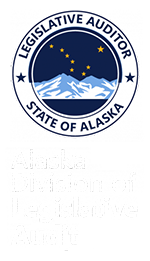| SUMMARY OF: | A Special Review of the Department of Administration (DOA), State Travel Office (STO) |
Why DLA Performed This Audit
This audit of the State Travel Office was requested to determine whether centralizing travel procurement for the executive branch has resulted in effi ciencies and lower travel costs, to evaluate the relevance and reliability of reported travel information, and to make recommendations to reduce travel costs. This audit also evaluates whether the State has appropriately received their contractual discounts in airfare rates, and reports the status of prior STO audit recommendations.
Report Conclusions
The audit concludes centralizing travel procurement has reduced non-Medicaid travel costs and increased the efficiency of the procurement process. Non-Medicaid air travel costs were reduced
in FY 15 by almost $700,000 through purchasing travel through the STO. Additionally, with minor exceptions, airfares tested as part of the audit reflected the correct contractual discount rates. Improving travel practices can further reduce State travel costs. The audit recommends revising travel policies to clearly communicate the expectation for advance purchase, enhancing the reporting of travel information to help reduce the expiration of air tickets, and limiting the number of agencies exempt from using the STO. The audit found discounted airfare rates reduced Medicaid airfare costs in FY 15, however the $1.9 million in booking fees charged by the State’s travel vendor significantly exceeded the savings of $990,000. It is the Department of Health and Social Services’ (DHSS) standard practice to purchase one of the most expensive types of airfare, the fully refundable class of airfare, for its Medicaid recipients in need of travel. Furthermore, the audit found 75 percent of the FY 15 Medicaid airfares were purchased less than seven days in advance of travel. Both of these actions increased DHSS travel costs. When evaluating Medicaid travel, the audit identified that $3 million in Medicaid airfare refunds were due the State; however, because of problems with the Medicaid system, DHSS has not been able to process those refunds.
Improvements are needed to ensure the STO travel information is both relevant and reliable. The audit found important information was excluded from STO’s saving rate calculation and in STO’s monthly travel reports. Increasing the relevance and reliability of travel information may assist State agencies in actively managing travel costs. Two of the previous STO audit recommendations were resolved or no longer apply to current processes. Two prior recommendations to improve reporting of travel activity for management purposes have not been resolved. One prior recommendation for a statuary change is being worked on but has not been fully addressed.
Findings and Recommendations
1. DOA’s Division of Finance (DOF) director should revise the savings rate calculation methodology for airfare to ensure expenditures and revenues are appropriately included in the savings rate.
2. DHSS’ commissioner should revise procurement practices to reduce Medicaid travel costs.
3. DOA’s DOF director should collect the $3 million due from its travel contractor.
4. DOA’s DOF director should revise State travel policies to encourage advance purchase of airfares.
5. DOA’s DOF director should improve the reporting of travel activities.
6. DOA’s DOF director should reconsider agency STO exemptions.

